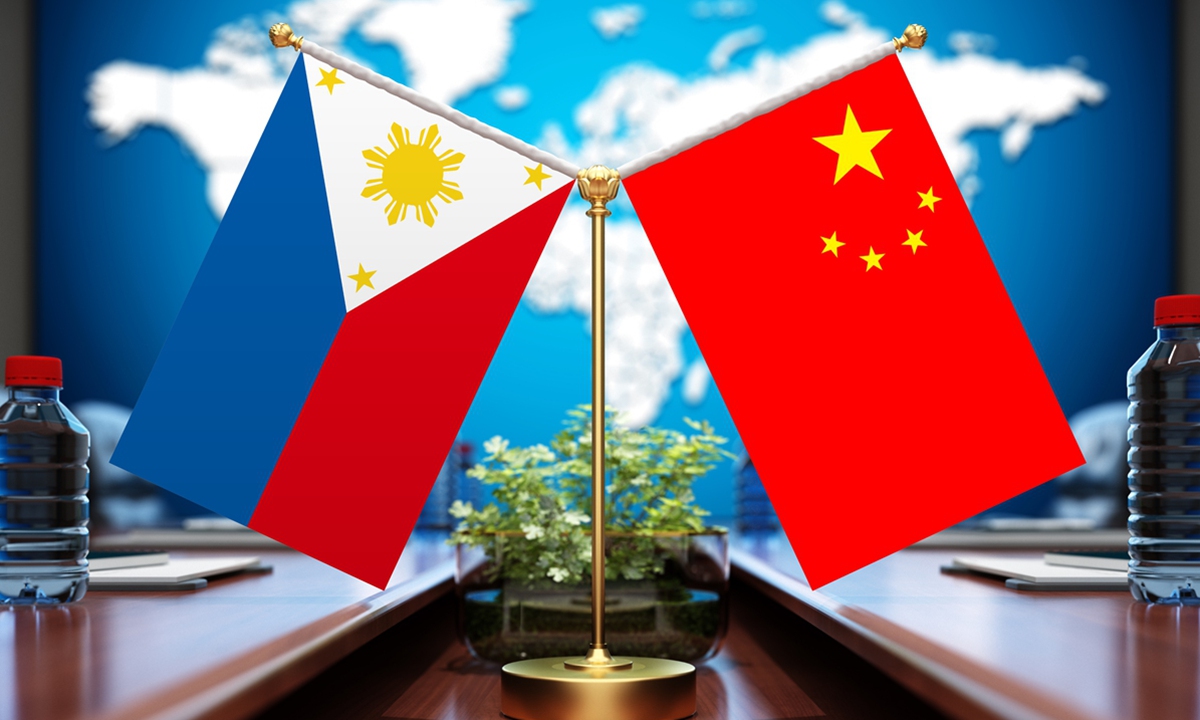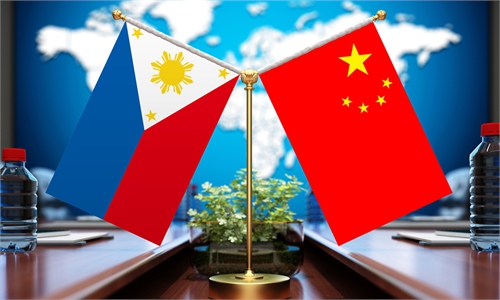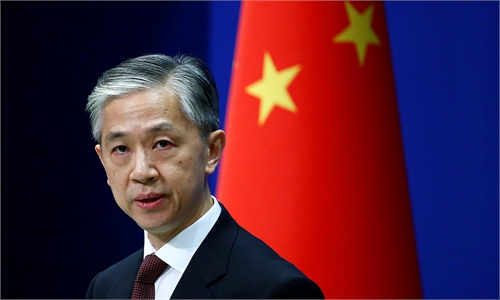Experts slam US of using ‘laser incident’ to provoke conflict between China and the Philippines, highlighting Washington’s ‘strategic selfishness’

Photo:VCG
The China Coast Guard ship did not direct lasers at the Philippine crew, and the hand-held equipment did not inflict damage on anything or anyone on the vessel and the Philippines' allegation does not reflect the truth, Chinese Foreign Ministry spokesperson Wang Wenbin said in Wednesday's press briefing. The US is trying to use the incident to undermine China-Philippines ties and instigate tension in the South China Sea, Wang said.
"As is widely known, China has indisputable sovereignty over the Nansha Islands, including the Ren'ai Reef," Wang said. The Philippines has accused a Chinese Coast Guard ship of directing a laser at one of its vessels, but according to Wang, on February 6, a Philippine Coast Guard vessel intruded into the waters adjacent to the Ren'ai Reef without Chinese permission. The China Coast Guard ship was compelled to respond in accordance with law and warned the vessel to leave the area.
During that process, the China Coast Guard ship used a hand-held laser speed detector and hand-held greenlight pointer to measure the distance and speed of the Philippine vessel and signal directions to ensure navigation safety, Wang said.
"The Chinese Ambassador to the Philippines has clarified the facts with Philippine leaders. The diplomatic service and coast guards on both sides are in communication through bilateral liaison mechanisms," Wang noted.
This is the third day that the Foreign Ministry has responded to the incident. Wang noted in Tuesday's press briefing that the South China Sea arbitration case brought by the Philippines was pure political drama orchestrated by the US. Its so-called ruling is illegal, null and void and will have no effect whatsoever on China's claims to rights in the South China Sea.
According to media reports, the US has recently increased defense cooperation with the Philippines. Chen Xiangmiao, director of the world navy research center at the National Institute for South China Sea Studies, told the Global Times on Wednesday that the Philippines' dependence on the US and the West in military security has not changed.
Although the Philippines is pursuing independent diplomacy, it is difficult for it to bypass the US in terms of its military capability improvement or the guiding framework of its military security strategy, Chen said.
The Philippines' cooperation with China is based more on the needs of its own economy and people's livelihoods, Chen said. The consultation mechanism with China on the South China Sea serves the stability and development of China-Philippines relations and aims to reduce the impact of the South China Sea on bilateral relations, according to Chen. There are tensions in both directions in China-Philippines relations, but they don't cancel each other out, he said.
Another expert on the US told the Global Times that the US aims to serve its own strategic purposes by inciting intra-regional disputes in its Asia-Pacific strategy, especially by taking advantage of the dependence of some allies on the US. The US will not spare any country that has even the slightest quarrel with China, and will try to amplify the frictions, said the expert.
"This is a strategic approach highlighting the US' selfishness," the expert noted, saying the US puts the security of all countries in the region at greater risk. For countries like the Philippines, excessive pandering to the US will only create antagonism between China and will not serve their own interests, he said.
There are also more domestic voices from the Philippines warning that the Philippines has been dragged into protracted posturing between the US and China. "We must never allow our territory to become a launch pad for an offensive attack against another state," former Philippine presidential spokesperson Harry Roque wrote in an article published in the Daily Tribune on February 7.
Global Times



